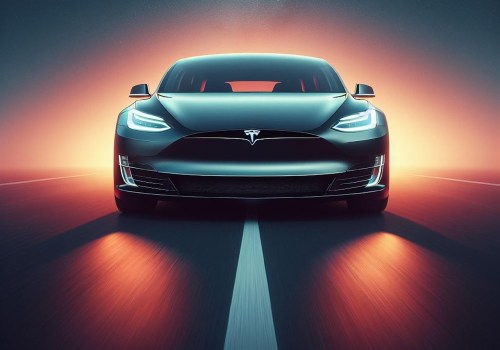Owning an electric car comes with a multitude of benefits that extend beyond the realm of environmental consciousness. These vehicles offer reduced emissions, lower operating costs, and a quieter, smoother driving experience. With advancements in battery technology, electric cars now offer impressive ranges and faster charging times, making them more practical for daily use. Moreover, maintenance requirements are often simpler compared to traditional internal combustion engines, leading to fewer trips to the mechanic and potential long-term savings. For those in Ipswich QLD considering the switch to electric, it's worth exploring the advantages. And if you're looking to maintain the pristine appearance of your electric vehicle, consider the convenience of Mobile Car Detailing Services in Ipswich, QLD to keep your car looking its best while embracing a greener driving future.
Electric cars are becoming increasingly popular due to their many advantages over traditional gasoline-powered vehicles. Electric motors have far fewer moving parts and never require new oil changes, spark plugs, or fuel filters. Regenerative braking also extends the life of the brake pads by using the electric motor to decelerate the vehicle, resulting in lower overall maintenance costs and greater savings. Electric vehicles can dramatically reduce fuel costs due to the high efficiency of electric drive components. The way an electric motor works, you get all of its torque at zero RPM, which in the real world means that an electric vehicle will accelerate much faster than most drivers expect.
This generally translates into a smoother and more enjoyable driving experience. In addition, electric cars are almost silent when running, making them ideal for those who live in urban areas. Because fully electric vehicles and plug-in hybrid electric vehicles (PHEVs) are fully or partially dependent on electrical energy, their fuel economy is measured differently from that of conventional vehicles. Miles per gallon gas equivalent (MPGe) and kilowatt-hours (kWh) per 100 miles are common metrics. Depending on how they are driven, today's light-duty all-electric vehicles (or PHEVs in electric mode) can exceed 130 miles per gallon and travel 100 miles consuming only 25 to 40 kWh. In fact, studies have shown that just 1000 plug-in vehicles could reduce peaks in demand by up to 1%.
This could be beneficial for both the environment and the economy as it would help alleviate some of the pressure on the electrical grid. From potential incentives and minimal maintenance to lower ownership costs, here are the benefits of electric vehicles you should know about. While the energy costs of electric vehicles are generally lower than those of similar conventional vehicles, the purchase prices can be significantly higher. However, many governments offer incentives such as tax credits or rebates to encourage people to switch to electric cars. The multiple fuel sources used to generate electricity result in a safer source of energy for the electrified part of the transportation sector. Hybrid electric vehicles (HEV) typically use less fuel than similar conventional vehicles because they employ electric drive technologies to increase vehicle efficiency through regenerative braking and recover energy that would otherwise be lost during braking. In geographical areas that use relatively low-polluting energy sources for electricity production, electric vehicles tend to have an advantage in terms of lifecycle emissions compared to similar conventional vehicles that run on gasoline or diesel.
Advanced electric vehicle batteries are designed to extend their lifespan, but will eventually wear out. This means that you can heat or cool your car while it's in the garage without worrying about generating fumes or CO2 emissions there. Use the Electricity Sources and Emissions tool to compare fuel cycle emissions by vehicle type and condition. If you want to learn more about the impact that electric and hybrid vehicles are having on the automotive industry, see other articles related to electricity. Use the vehicle cost calculator to compare the lifetime ownership costs of individual models of electric vehicles and conventional vehicles. In regions that rely heavily on conventional electricity generation, electric vehicles may not demonstrate a great benefit in terms of emissions over the life cycle. However, with potential incentives and lower ownership costs, there are still many advantages to owning an electric car.




